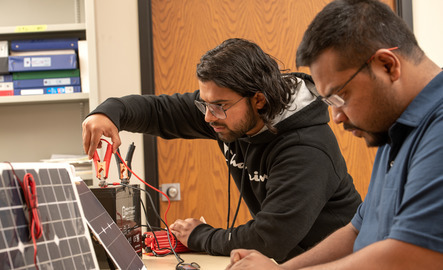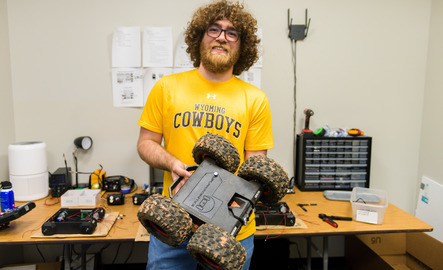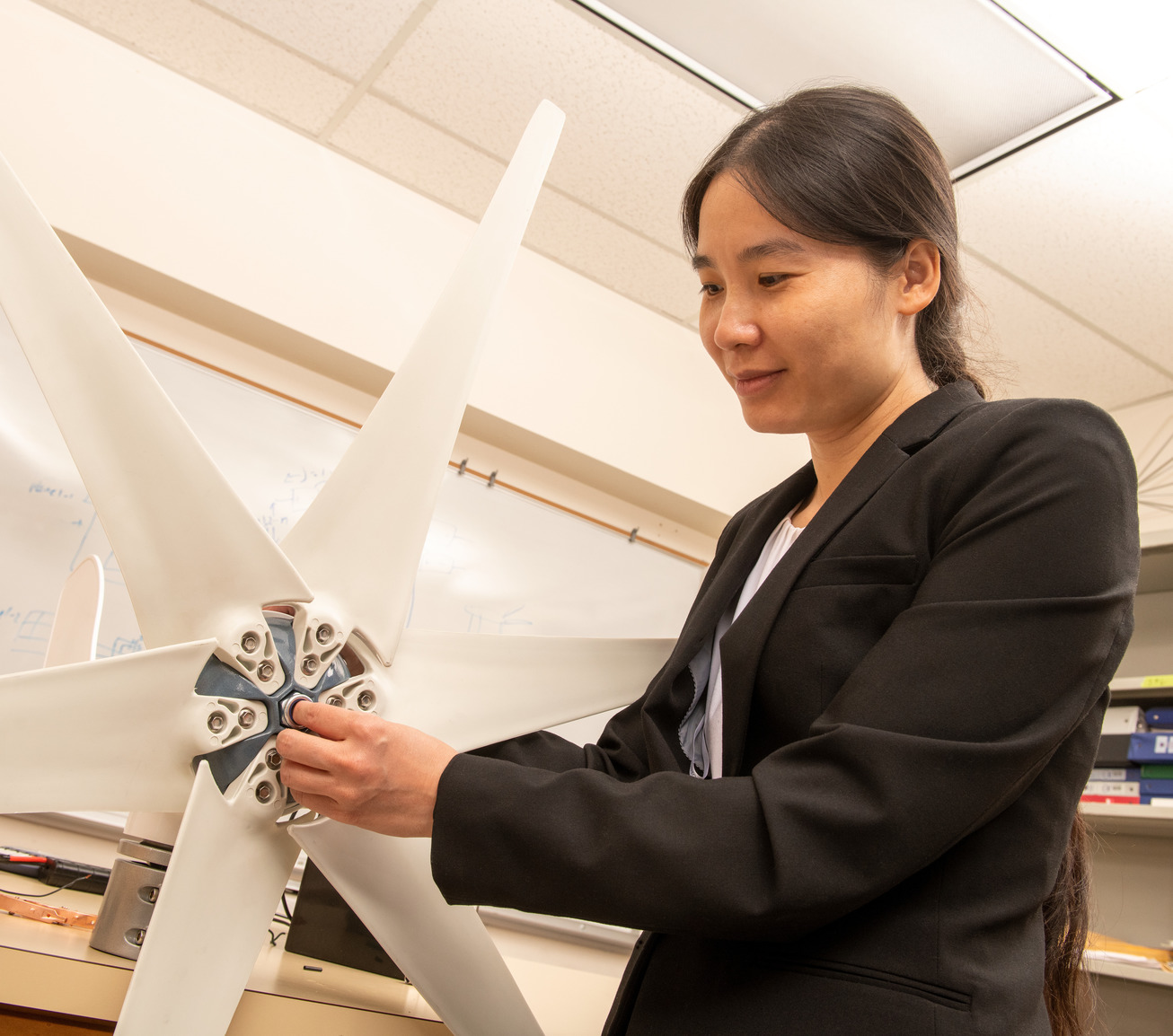About the Electrical Engineering Major
UW’s electrical engineering degree prepares students to design, develop and analyze
the technological systems we all use on a daily basis.
Our program prepares students for their important role in technology by providing
a foundational education in electrical engineering. In addition to electrical engineering
courses, students choose a specialty. Specialties include robotics, microcircuits,
electronics and more. UW also offers a unique bioengineering specialty for those interested
in applying their electrical engineering education to environmental science, wildlife
studies, biology or medicine.
Students gain hands-on experience throughout the program by participating in laboratory
work and a one-year senior design project.

The electrical engineering program at UW is accredited by ABET, an organization that certifies the quality of engineering, technology and applied science programs globally.
Many of our students find their home away from home in student-run organizations on
UW’s campus. These organizations give students opportunities to learn about potential
career paths, connect with other students and network with professionals.
Here are a few organizations that may interest you:
- American Society of Mechanical Engineers (ASME)
- Collegiate Wind Energy Competition
- Institute of Electrical and Electronics Engineers (IEEE) Student Chapter
- Society of Women Engineers (SWE)
- Wyoming Robotics Club

Explore all UW's College of Engineering and Physical Sciences (CEPS) student organizations!
Electrical Engineering Minor
Interested in circuit design, signals and systems analysis, computer logic or electromagnetic theory? The University of Wyoming's electrical engineering minor might be right for you! Learn more and see if you should tack this amazing minor onto your primary degree.
Learn MoreWhat can you do with an electrical engineering degree?
Electrical engineers create systems for a wide variety of fields. Some of our graduates pursue careers in telemetry for wildlife management or environmental monitoring. Others pursue the design and development of biological and medical instrumentation. Regardless of the job title you pursue, there are employment opportunities with state and federal agencies, companies and medical institutions.
- Electrical Engineer
- Power Systems Engineer
- Control Systems Engineer
- Communications Engineer
- Signal Processing Engineer
- Instrumentation Engineer
- Automation Engineer
- Embedded Systems Engineer
- Radio Frequency Engineer
- Field Engineer
- Energy Analyst
- Aerospace Engineer
- Computer Hardware Designer
- Product Development Engineer
- Safran Passenger Innovations
- National Center for Atmospheric Research
- UplinkRobotics
- MIT Lincoln Laboratory
The job outlook for electrical engineering graduates is strong. With technology advancing quickly, there's steady demand in areas like renewable energy, automation, and communications. Whether you're designing systems or solving real-world tech problems, career opportunities are diverse and continuing to grow.


